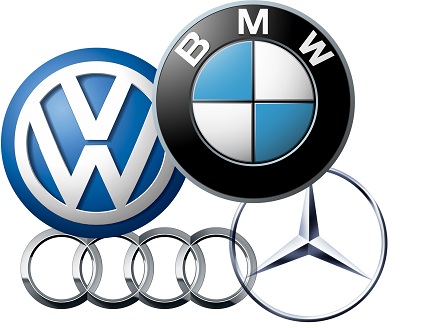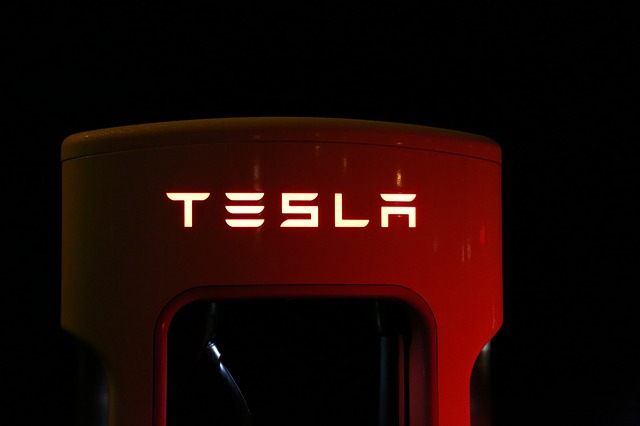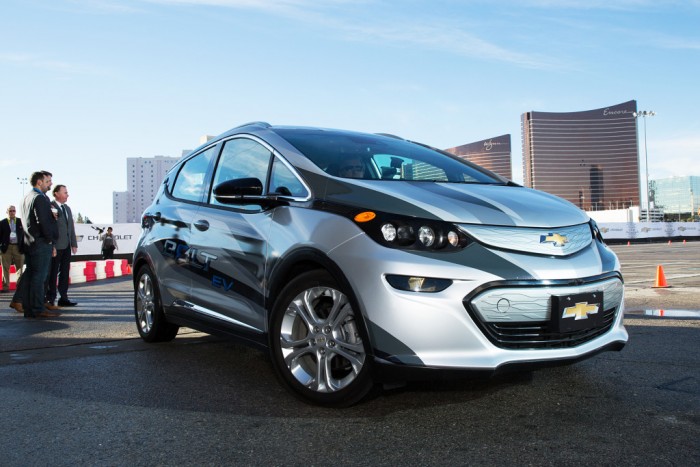Now Reading: German automakers depending on volume to counter Tesla
-
01
German automakers depending on volume to counter Tesla
German automakers depending on volume to counter Tesla

German automakers are betting they can mass produce new electric vehicles based on standard vehicles, defying skeptics who state they will require more radical designs to avoid the threat from Tesla and other start-up automakers.
There are two means to make battery-driven automobiles: use a clean-sheet design like Tesla, or a standard automobile platform that can use all kinds of motor: combustion, electric or a hybrid of the two.
Electric motors are smaller sized compared to fuel or diesel engines, so electric vehicles developed from scratch can take advantage of better interior packaging which permits a larger passenger space. The issue is that their special design needs a dedicated production line and costly new factories.
BMW discovered this the hard way after putting billions into bespoke carbon-fibre based electric vehicles, the i3 and i8, which were not selling in large numbers.
“It is simple to build an electric vehicle. It is hard to generate income with it,” stated BMW research and development chief Klaus Froehlich.
Because BMW began selling the i3 in 2013, vehicle battery performance has enhanced by 40 percent, permitting automakers to make electric cars with the same foundations used by fuel cars and still get a range of 500 km from a single charge.
And they also think, that it gives them an advantage over makers of custom built electric automobiles.
As Tesla goes into the mainstream with its more affordable Model 3, BMW has made a strategy u-turn to produce electric vehicles in huge numbers, pledging to offer battery-powered variants of regular models.
Froehlich stated vehicle designs devoted to only one powertrain were not needed.
BMW is preparing to introduce an all-electric variation of its popular X3 offroader by 2020, and Mercedes-Benz will introduce the electrical EQ in 2019, based on its best selling SUV, the GLC.
The brand-new electric BMW, the i Vision Concept, will use the same foundations as future versions of the BMW 3-Series.
Electric and fuel variations will be developed on the same production lines, permitting a flexible response to demand for electric vehicles.
To extend the life of its i3, BMW has offered it a fresh style and a new battery. However the company’s strategic bet is on revamping volume production lines to quickly scale up production if required.
Demand for electric cars is still weak because of their high purchase cost and low amount of charging facilities. But this might change if battery costs keep falling.
“Battery costs are coming down. We believe that we can bring economies of scale to bear beyond just the battery and drivetrain. I think we will be in a good competitive position from that perspective,” Daimler CEO, Dieter Zetsche, informed Reuters.
Daimler owned Mercedes is also working on a platform just for electrical and self-driving vehicles, to be presented after its initial wave of electric vehicles are on the road.
Germany’s 3 big premium automakers – Mercedes, BMW and Volkswagen’s Audi – have most to lose if Tesla’s volume numbers on the premium automobile market succeeds.
Tesla made 83,922 cars in 2016, which is far ahead of the German automakers in electric car sales. BMW sold 25,528 electric i3’s in 2016 and Mercedes won’t reveal sales figures for its electric B-Class. Overall, Mercedes and BMW sold over 2 million cars each in 2016.
Stay Informed With the Latest & Most Important News
Previous Post
Next Post
-
 01Polestar Boss Says It’s Time To Outrun BMW M And Mercedes-AMG
01Polestar Boss Says It’s Time To Outrun BMW M And Mercedes-AMG -
 02Spy Shots: 2027 Mitsubishi Pajero Spotted in Testing Ahead of Possible U.S. Return
02Spy Shots: 2027 Mitsubishi Pajero Spotted in Testing Ahead of Possible U.S. Return -
 032026 Toyota Hilux EV: A Powerful Truck with Silent Torque
032026 Toyota Hilux EV: A Powerful Truck with Silent Torque -
 04Spy Photos: VW ID. Polo GTI Goes Electric with 223 HP and 280 Miles of Range
04Spy Photos: VW ID. Polo GTI Goes Electric with 223 HP and 280 Miles of Range -
![2027 Mercedes-Benz S-Class Debuts with V8 Engine [Photo Gallery]](https://speedlux.com/wp-content/uploads/2026/01/2027-Mercedes-Benz-S-Class-33-155x125.jpg) 052027 Mercedes-Benz S-Class Debuts with V8 Engine [Photo Gallery]
052027 Mercedes-Benz S-Class Debuts with V8 Engine [Photo Gallery] -
 06The Controversial Ford Voodoo V8 That Was Killed Off Too Early
06The Controversial Ford Voodoo V8 That Was Killed Off Too Early -
 07Hyundai Palisade’s Breakout Year Shows How Quickly the Market Can Turn
07Hyundai Palisade’s Breakout Year Shows How Quickly the Market Can Turn



![2027 Mercedes-Benz S-Class Debuts with V8 Engine [Photo Gallery]](https://speedlux.com/wp-content/uploads/2026/01/2027-Mercedes-Benz-S-Class-33-700x394.jpg)











































